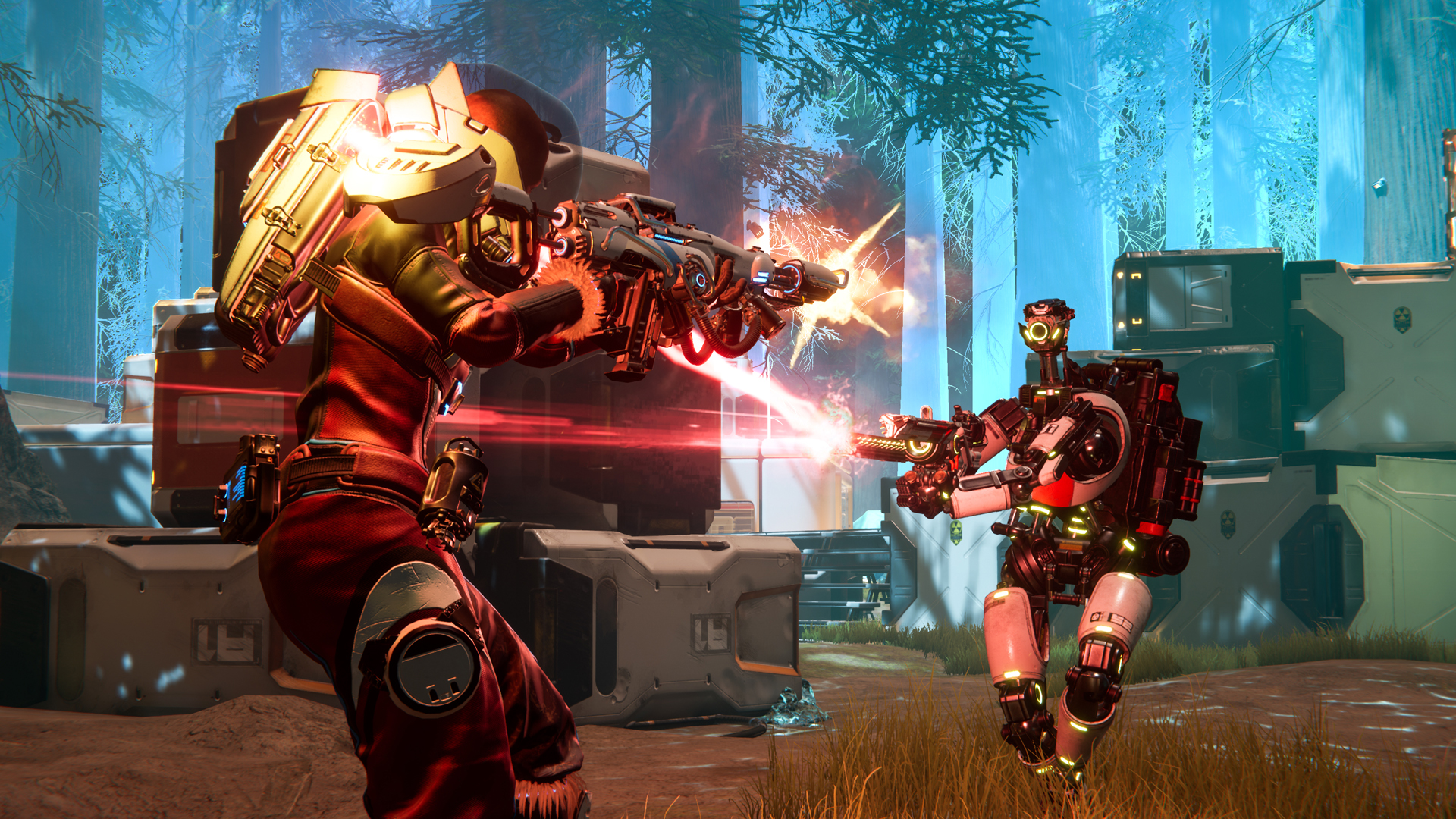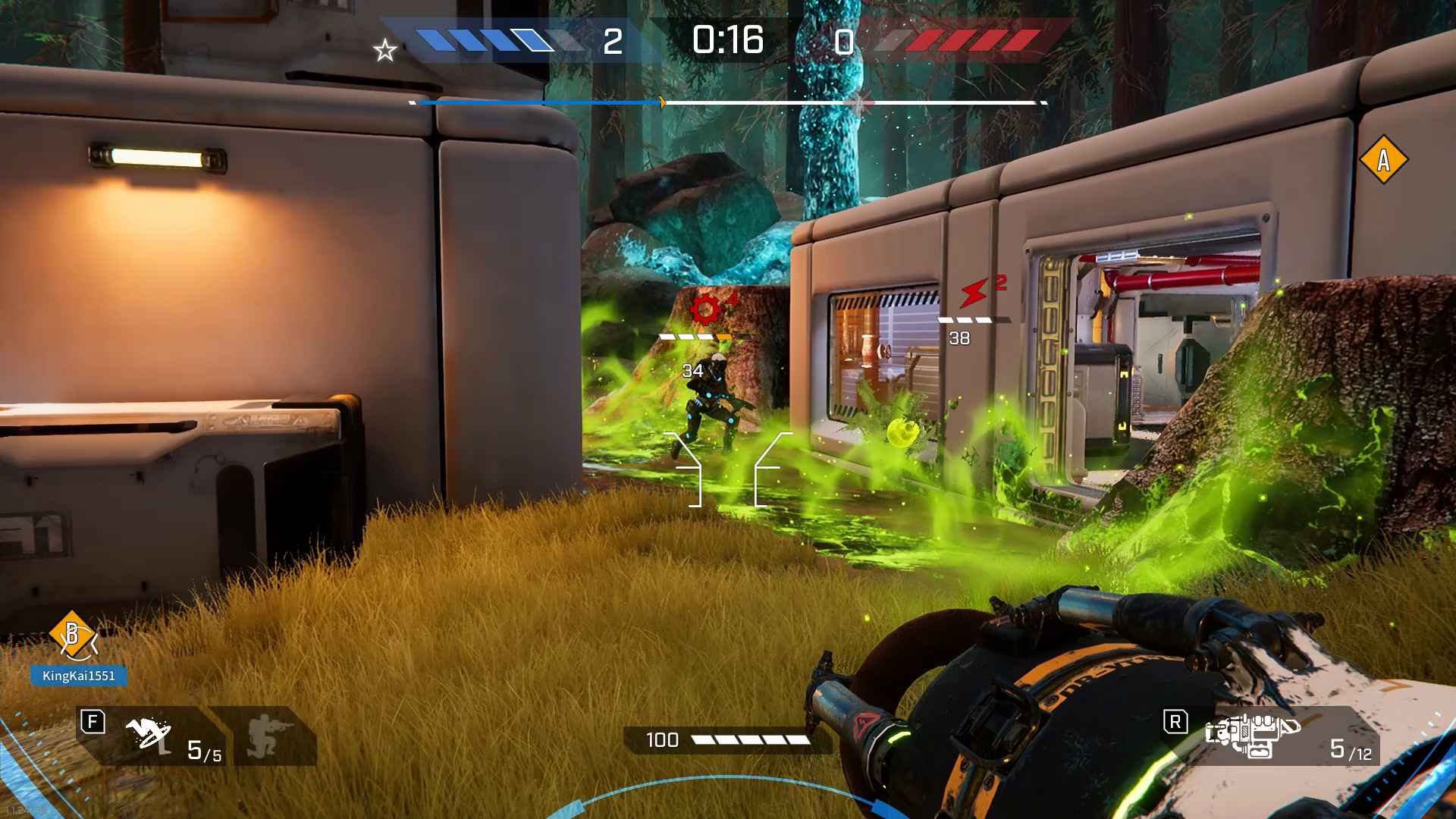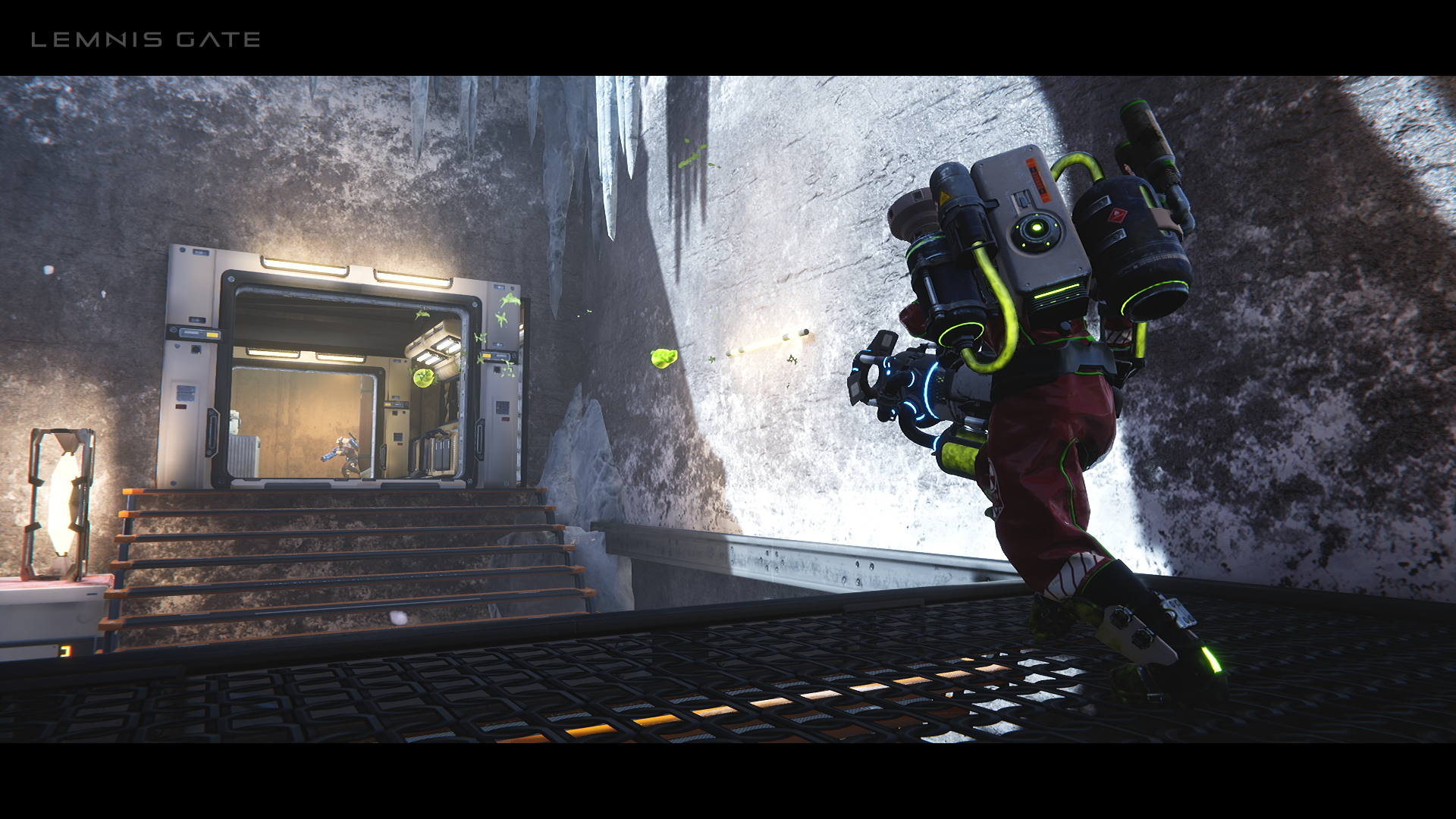Our Verdict
With its well executed timeloop concept, Lemnis Gate could be the sleeper shooter of 2021.
PC Gamer's got your back
The recent wave of games designed around timeloop mechanics reveals a simple truth: timefuckery is cool, it makes you feel clever, and videogames, intertwined as they are with the concept of perpetual death, are the perfect medium to explore it.
What is it? Multiplayer FPS with a unique time-loop mechanic
Expect to pay: $20/£16 (free on Xbox Game Pass)
Developer: Ratloop Games Canada
Publisher: Frontier Foundry
Reviewed on: Ryzen 7 5800H, Nvidia GeForce 3070 (mobile), 16GB RAM
Multiplayer? Multiplayer-only
Link: lemnisgategame.com
Lemnis Gate dusts off an old-school arena shooter framework and layers it with a pretty brilliant time loop concept. Each match consists of five overlapping 25-second rounds. For each round you pick a unique operative to carry out the mission—which may be a twist on your classic Deathmatch, Domination, Attack & Defend modes, or grabbing orbs from around the map and running them back to your base.
But here’s the temporal twist: with each round—which may be simultaneous with your opponent or turn-based, depending on which match type you queue into—you and your opponent’s plays from previous rounds get looped in. So by the end of the match you and your enemy are running around amidst four past versions of yourselves, all dutifully stuck on the paths you set for them.
The key to victory is disrupting the enemy’s past loopers from carrying out their objectives while preserving yours (this is spiced up in simultaneous mode where you and your enemy move at the same time—imagine making simultaneous chess moves with someone!). The most obvious way to disrupt an enemy is to shoot them, of course, but things get much more interesting than that.
Winception
Between rounds and during your opponent’s turns, you free-fly around the map with an observation drone. This isn’t some silly downtime, but a crucial planning phase. You can use the drone to track particularly disruptive enemies, or mark enemy bottlenecks that you can launch a rocket into on your turn.
As each successive round gets busier and more chaotic with the events of previous rounds, Lemnis Gate becomes brain-strainingly tactical. By the last round you feel like a master of the match, aware of details like how six seconds into the round an enemy will come running through a certain doorway so you can leave a mine there for him in anticipation of his inevitable arrival. Of course, during your plays your opponent will also be plotting their path to victory, and will definitely see openings that you don’t.
Each new round is a new puzzle. Do you, for instance, try to shoot the sniper destined to kill your Tracer-like speedster who can get to the objective before anyone else? Or would it be smarter to use Karl the robot in the final round to throw a protective shield bubble around your past speedy self, blocking that game-changing bullet from ever reaching its destination?
Keep up to date with the most important stories and the best deals, as picked by the PC Gamer team.
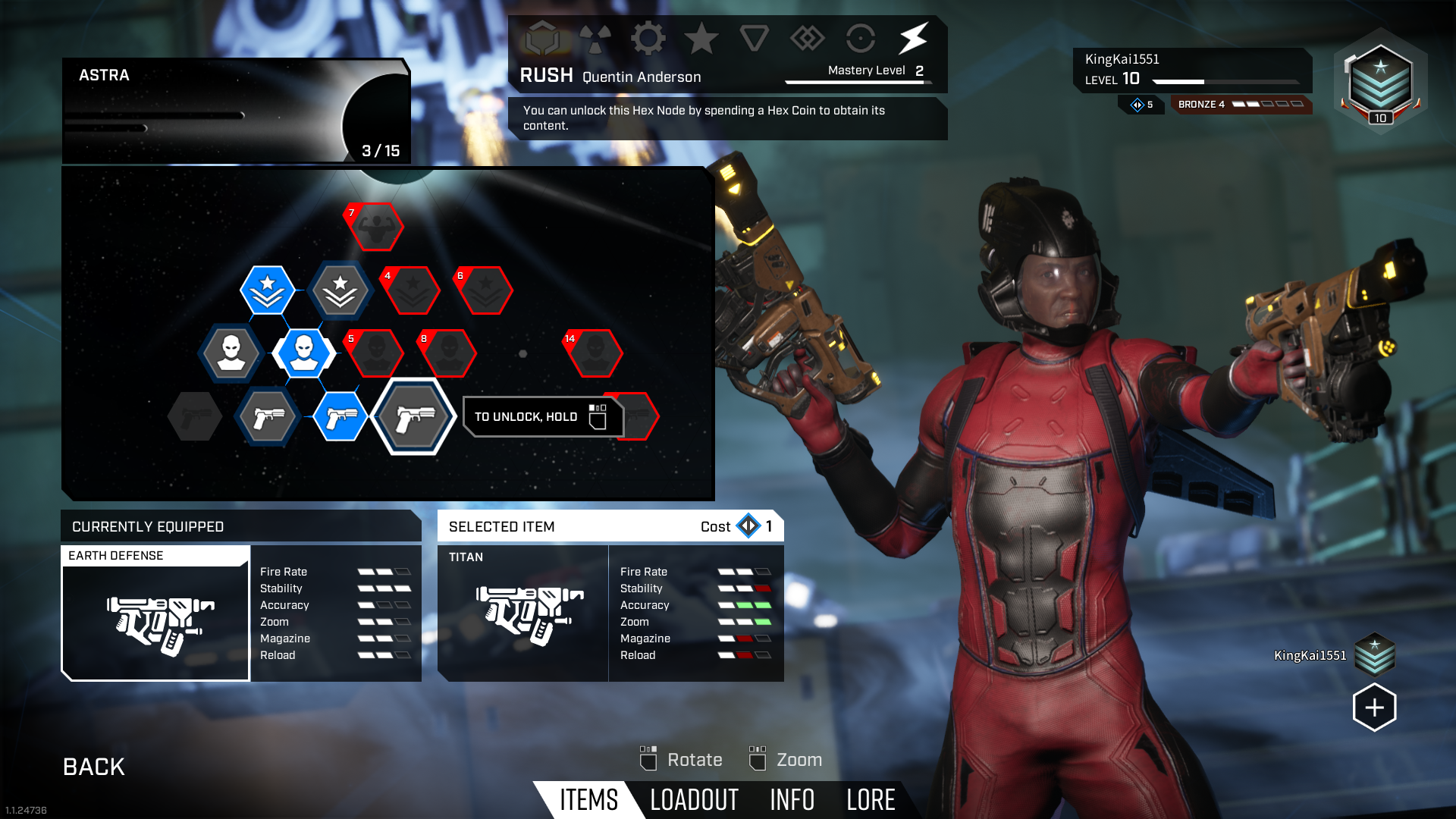
Like chess, a lot of the satisfaction and strategy is in picking the right piece for the right move. I like to save my Vendetta operative (an engineer, basically) for late in the match, messing up the board with three or four of her tiny turrets, which auto-lock onto any enemy that passes by.
You won't find this galaxy-brain stuff in Call of Duty.
Lemnis Gate's broader arena shooter vibe is reinforced by tight, learnable maps set on intergalactic colonies, complete with mobility touches like jump pads and a sliding bunny-hop maneuver. If the comparable but cartoony Quantum League is the timeloop shooter for the Fortnite generation, then Lemnis Gate is for those who grew up on the space stations and asteroid arenas of 1999. The simple weaponset is straight out of the Unreal Tournament archives, with equivalents like the Link Gun, the Translocator teleporter, and even the goo-firing Bio Rifle all on hand.
Time-traveling dominoes
Lemnis Gate's time-looping mechanic is so clever that it makes familiar FPS concepts—like something as ordinary as friendly fire—more interesting. At one point, my opponent got overly aggressive on their turn, and in their blind bid to wipe out my team killed their own orb-carrying teammate with a misplaced rocket shot. Instead of taking this berserker out on my next turn, I let him complete his self-destructive loop while I ran off to pick up another orb, returning it to base, then nipping back out to pick up the orb he’d kindly vacated for me.
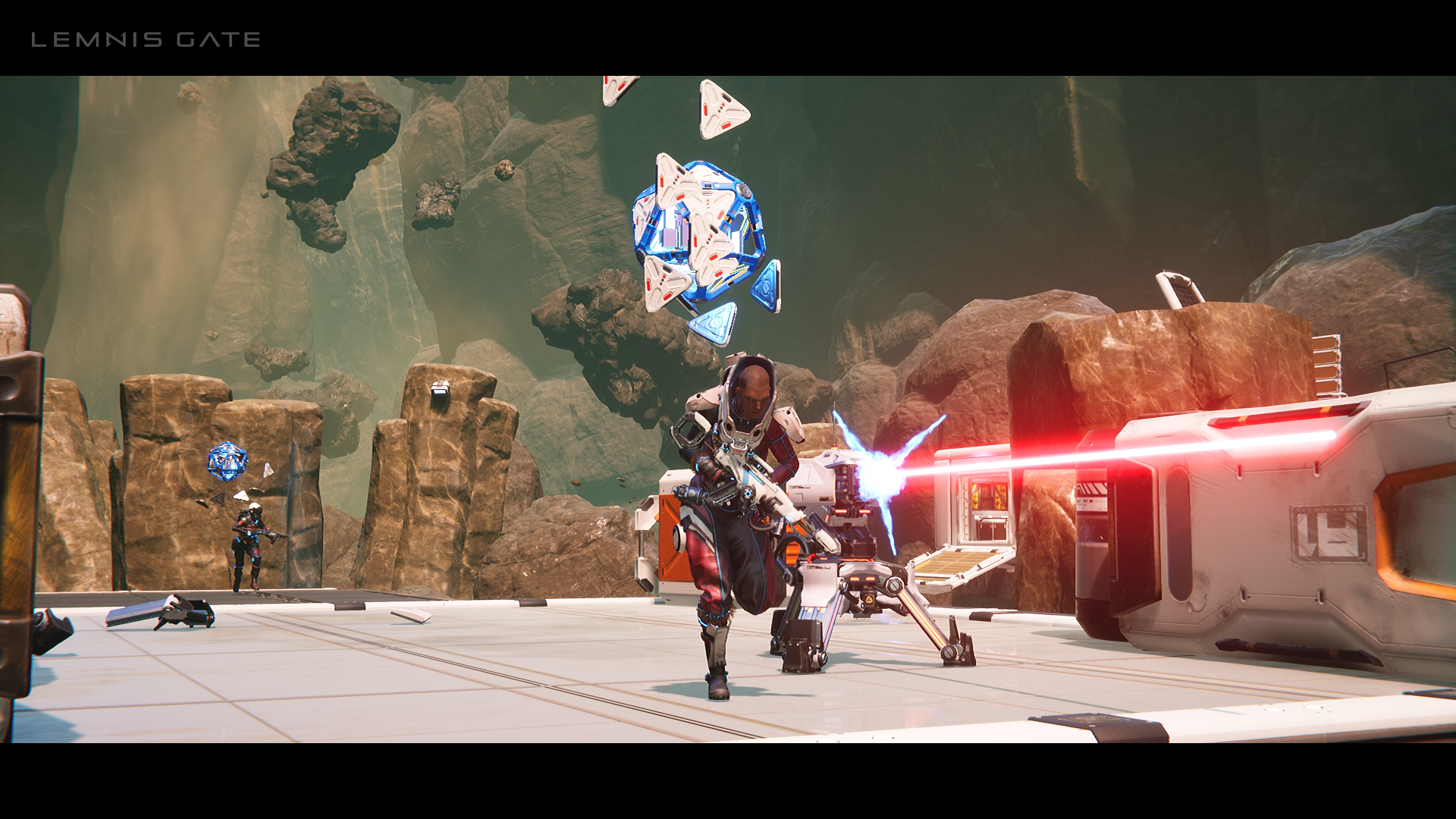
And naturally, you're not exactly dead when you die. You continue the round as a ghost if you hit 0 HP, and in this state you can and should keep carrying out objectives and shooting enemies. Should you manage to save that version of yourself from dying in a future round, they (or is it still ‘you’?) could swing the match in your favour. Already players are implementing strategies that involve killing a couple of their teammates/past selves with a rocket early in the match, completing their rounds as ghosts, then in a later round throwing down an orb so those teammates don’t die to the rocket and go about their loops. It effectively gives the enemy extra players to deal with that they didn’t plan for.
You won't find this galaxy-brain stuff in Call of Duty. It’s all kind of brilliant: a game where twitch reflexes can be outdone by careful planning and identifying the enemy’s weakspots between rounds. FPS? More like FP-Chess.
On the other hand, a heroic display of shooting prowess can undo a solid strategy in a second. During one match I was being thoroughly outsmarted, and going into the final round my opponent had destroyed both of the reactors I did such a shit-awful job of defending. I sent out the goo-hurling Toxin in my attempt to save at least one reactor and salvage a draw, which I did.
I didn’t plan beyond that, but with 10 seconds to go I saw that a timeloop-trapped enemy would cross my line of sight for about half a second on route to my other reactor. I anticipated their run and hurled a last-ditch glob. It did just enough damage that the turrets in the Reactor room would finish them off, which in turn meant my shotgunner defending the reactor would survive, which in turn meant that the shotgunner would kill the last remaining enemy before they could complete their loop and shoot the reactor.
And thanks to the photo mode included in the excellent in-game replay system, I can present that wonderful game-defining moment to you:
I hadn’t felt such ecstasy in a comeback since my Rocket League heyday, and it’s testament to the map design that you can do an awful lot in 25 seconds (so long as you plan and execute properly).
Lemnis Gate isn’t perfect, and not just because its name evokes cough syrup more than 4D Chess with Unreal guns. It doesn’t quite have the precision you’d want from a game where the margins between defeat and victory are so fine. Acceleration and sprinting feels stodgy, hitboxes around heads and shootable objectives aren’t always precise, and the rocket launcher crosshair is a nightmare. It means that amidst all the wonderful timeloop choreography you (and up to one teammate) devise, there are a few moments of hair-tearing frustration when the lack of polish undercuts your bullet ballets.
But that speaks to the high emotions Lemnis Gate evokes, and these technicalities should get tightened up with time. All in all it’s an auspicious start for this high-concept twist on the arena shooter, where smart strategising between rounds and dexterous gunplay during them are in a constant tug-of-war with each other, where games can hinge on a single bullet, well-placed turret or—as the case may be—globulet of green goo.
Player counts could be higher (crossplay does help), and you might struggle to find a full 2v2 game at this point, but that’s all the more reason to leap in with a friend. At a modest $20/£16 (or free with Game Pass), it could prove an ever-swirling timesink for shooter fans with a cerebral side.
With its well executed timeloop concept, Lemnis Gate could be the sleeper shooter of 2021.
Robert is a freelance writer and chronic game tinkerer who spends many hours modding games then not playing them, and hiding behind doors with a shotgun in Hunt: Showdown. Wishes to spend his dying moments on Earth scrolling through his games library on a TV-friendly frontend that unifies all PC game launchers.
